Gareth Southgate has been linked with replacing Erik ten Hag at Manchester United this summer – but would he be a good fit at Old Trafford? Sky Sports News senior reporters Melissa Reddy and Rob Dorsett analyse Southgate’s spell with England and whether he could succeed in club football.
Sky Sports News senior reporter Melissa Reddy:
When the initial whispers of Gareth Southgate being on a shortlist to become Manchester United manager circled at the start of March, several at the club shot down the links as “easy to make” due to Dan Ashworth’s impending appointment as sporting director.
The pair worked together through the FA, maintain a strong existing relationship, and shared aligned thoughts on the mechanics behind a successful football operation.
The murmurs have now morphed into ear-splitting noise, with Sir Dave Brailsford, who has also collaborated with Southgate through the INEOS Leaders in Sport programme, understood to be endorsing the England manager.
United have not commented on any of the rumours given Erik ten Hag is still in post, no definitive decision has been taken over his future, and there is still the FA Cup plus securing Champions League football to play for. The club are planning for next season with Ten Hag, including with potential recruitments and for summer tour plans.
There is great annoyance that the high point of their season – the late, galvanising 4-3 victory over Liverpool at an enraptured Old Trafford – has been so quickly followed by such speculation.
Some feel Ten Hag is being undercut and there is certain division in some quarters over the suitability of Southgate for the position.
The greatest concern is how someone who hasn’t been involved in the club game for 15 years – he was fired from Middlesbrough after overseeing their relegation from the Premier League in 2008-09 – can walk into its biggest job when he’s not even in the conversation for any others.
As one source put it: “Would any other top club be looking at him this summer? Would Liverpool hire him? Bayern Munich? So why would Manchester United?”
The reaction to the links from a variety of supporters – fan media, forums, social discussion – has been negative. The local paper carried a piece saying “Ten Hag’s popularity has soared” and that “even those who prefer him to part ways with the club would rather he continue than Southgate be appointed.”
There is a framing, whether rightly or wrongly, of the England manager being too pragmatic, risk-averse and failing to truly maximise the depth of attacking talent at his disposal.
Rewinding through World Cups and the Euros, a cautious approach has tended to be a triumphant one, but that wouldn’t wash at United.
There is also scepticism over Southgate given his poor record against the strongest international teams, which was reiterated in the defeat to France at the 2022 World Cup. England have won just seven of their 22 matches (32 per cent) against the current world top 10. How England react when they concede first, the manager’s substitutions and a lack of ruthless edge have all been criticised.
Appointing a manager that the fans are apprehensive of, and are not all in on from the start doesn’t tend to be a wise choice.
However, Brailsford and Ashworth believe that Southgate’s transformation of the culture, quality, and buy-in around the national team is exactly what United need and that his work can be translated to a day-to-day environment.
There’s the benefit at England of fielding players already steeped in the reset having represented the youth teams, although Southgate did heavily contribute to the ‘England DNA’ directive, the fact that much of the squad come in from environments of excellence – Manchester City, Liverpool, Arsenal – and that a few camps a year is not the same as a blueprint to be implemented daily.
Southgate’s authenticity, empathy and honesty would register well as a representative of the club. He would have supporters in the dressing room from the England contingent. Counterpoints have been made over if he would attract elite foreign players in the market, and if those who don’t wear the Three Lions shirt at United would be enthused or underwhelmed by his appointment.
Southgate has received a nod of approval from Gary Neville, Ian Wright and Roy Keane.
United haven’t made their decision yet. They have to be conscious of financial parameters and compensation for the England manager would be shy of a lowly £1m.
Southgate, whose contract expires in December, has not made any declaration over his future yet either. A choice will need to be communicated before the end of the season to help the FA, United and any other potential opportunity plan.
While everything is still up in the air, one thing is certain: Southgate to United would not be a universally popular appointment.
Can Southgate replicate England culture at Man Utd?
Sky Sports News senior reporter Rob Dorsett:
From the very start, when he took over as manager of the national team in 2016, Southgate’s mission was two-fold: to make the nation fall in love with the England team again and to make the players fall in love with the idea of representing their country.
He felt that if he could achieve those two things, along with the obvious quality in the ranks of the playing staff, England would have a real chance of winning a major trophy for the first time since 1966.
His entire ethos has been based around trying to make the England squad, and St George’s Park, replicate what it’s like for a player in their club environment. His philosophy has worked perfectly. Apart from the trophy bit.
When Southgate took over, the England camp was too often split along club lines. There were, at times, cliques within the squad – those that got on and those that didn’t. It wasn’t uncommon for players to withdraw from the England squad with minor ailments or simply make an excuse not to be there.
The FA staff have encouraged players to spend time together, at work, at play and at mealtimes. What is obvious now is just how well the vast majority of England players get on. That’s why Ben White’s request to be omitted from England call-ups going forward stands out as unusual.
The evidence of Southgate’s success in this area has been obvious when the summer internationals have come round – usually within days of the Champions League final. In 2019, Tottenham and Liverpool – with nine opposing players included in the England squad – went head to head in Madrid. England’s Nations League semi-final against the Netherlands was just five days after the final.
The same thing happened in 2021 when Chelsea and Manchester City met in the final in Istanbul. Seven England players featured in that final four days before England played their first Euros warm-up game against Austria.
Southgate knew those would be incredibly difficult situations, with one set of players elated and the other devastated, with club rivalries exposed for all to see. But on both occasions, those players re-bonded immediately once they met up, united by a shared mission to succeed with England. That is no small achievement from the manager.
A big part of Southgate’s plan to make the players motivated to go away with England, rather than go to a beach in Dubai, has been a sense of fun. Enjoyment is at the heart of every camp, with the serious business of preparing for elite-level matches weaved in cleverly.
Remember Harry Maguire and Jesse Lingard messing around on inflatable unicorns in the hotel pool during the World Cup, the day after England had beaten Tunisia. Take a glance at the FA social media pages while the players are in camp to see them playing basketball, competing in a silly quiz or taking on a challenge to roll a ping pong ball into various plastic cups, avoiding an outstretched tape measure.
By and large, the England players enjoy their time away with their country. During Euro 2020, when Conor Coady didn’t get a minute on the pitch as England made it to the final he described it as “the best experience of my life”. He just loved being part of the collective. Even though it cost him four weeks of his summer holiday. Extraordinary.
The FA photos and videos of the players arriving at the National Football Centre are always full of smiling faces, warm greetings, players and friends reunited. New additions to the squad are welcomed in, shown around and integrated quickly.
Overall, it’s clear Southgate and his staff have created an incredibly positive, welcoming and enjoyable atmosphere for the England players. They have revolutionised England camps, and the mood among the players, and they’ve seen a massive jump in success on the pitch as a result.
The question is, could that be replicated at one of the big European clubs like Manchester United?
The same fatherly care for the players – both in public and in private – would be a given if Southgate were the manager at Old Trafford, reminiscent of Sir Alex Ferguson’s bond with his players.
The same clever motivational techniques and determination to treat the players with respect would also be easily transferrable and roundly welcomed for sure.
But would Southgate’s other techniques work so well?
Some England players have told me that being away with their country sometimes feels like a holiday, a break from the club routine. Would that work so well if those activities were the daily club routine?
There are obvious question marks over Southgate’s record as a club manager. When he spoke to Sky Sports in December, he was adamant that his time at Middlesbrough was a much bigger success than he was given credit for.
Southgate has been repeatedly criticised by pundits for his tactical prowess or lack of it. Many will never forgive him for the lack of attacking substitutions during extra time at Wembley in the Euro 2021 final when it seemed Italy’s ageing defenders were vulnerable.
So, the jury is out. Southgate has done a quite brilliant job with England, but there are doubts whether he would be able to do the same at a club like Manchester United.











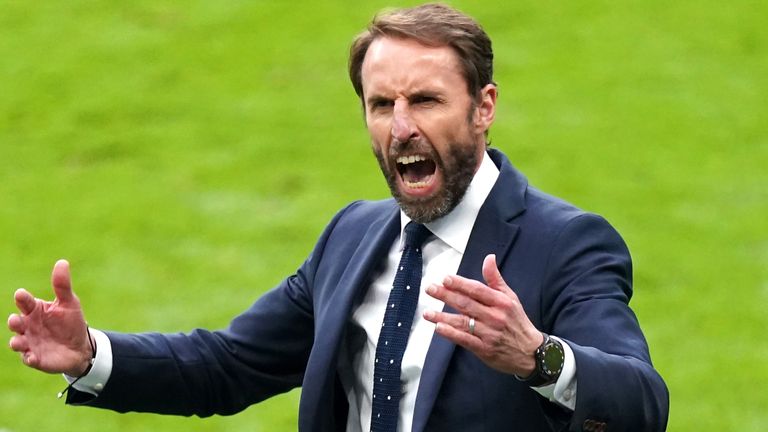
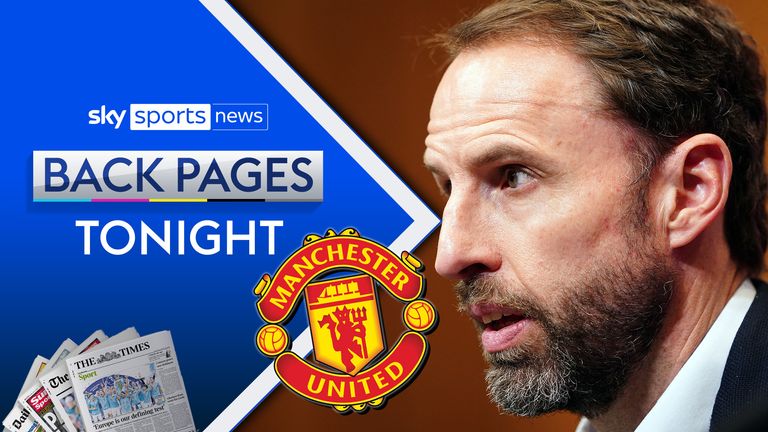
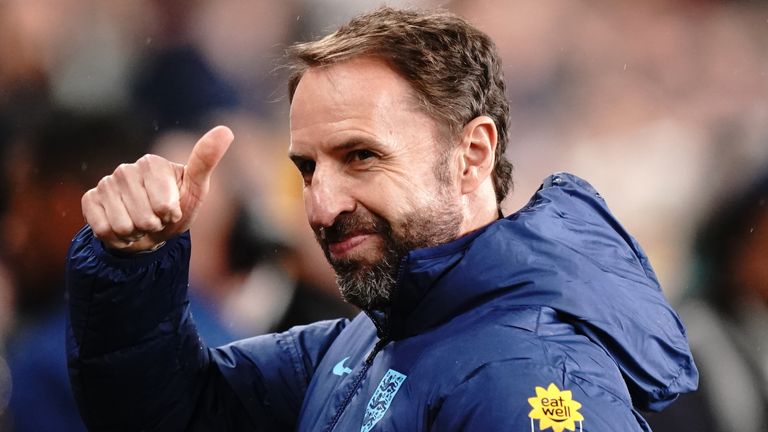
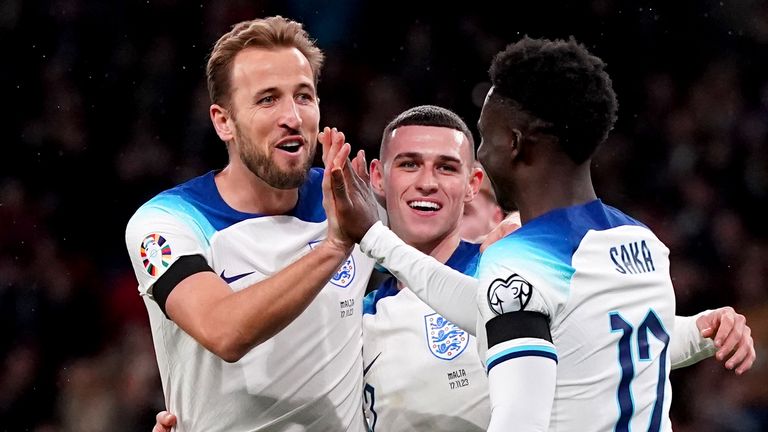
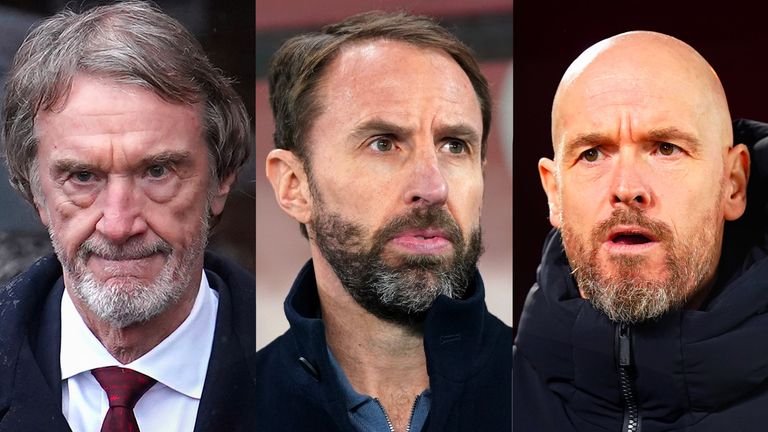





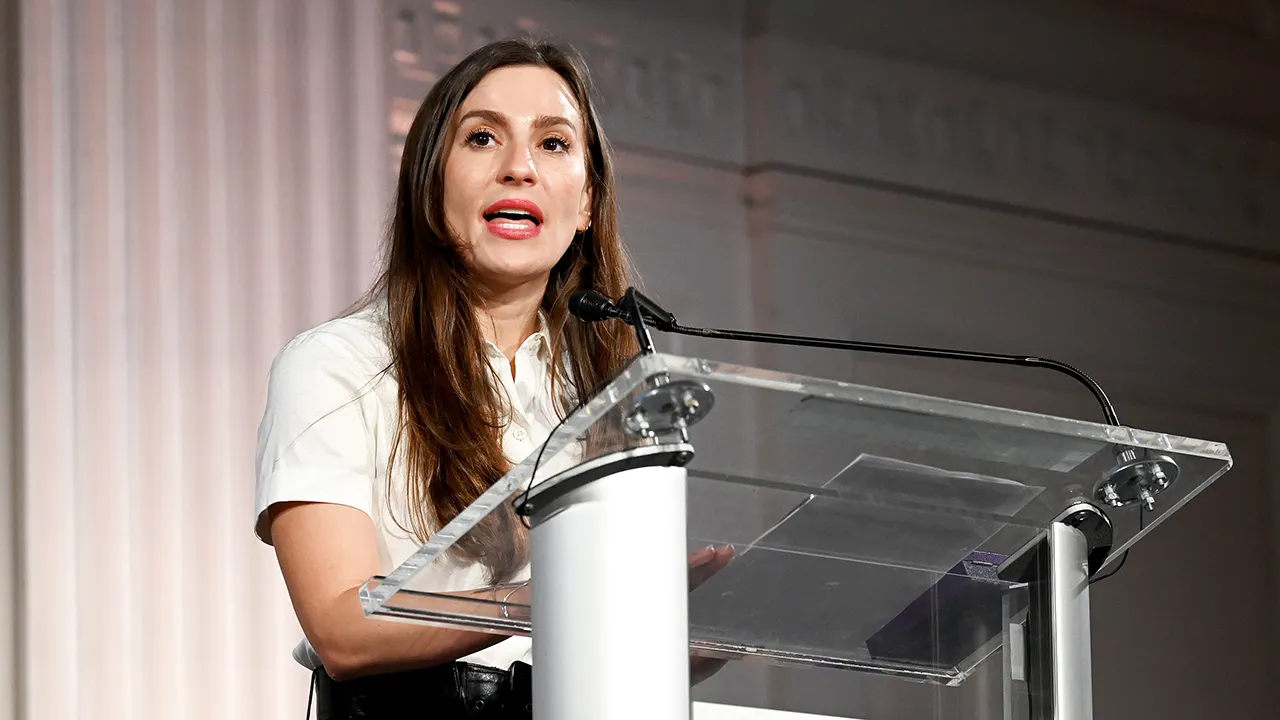



Discussion about this post